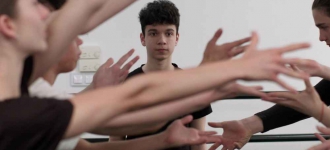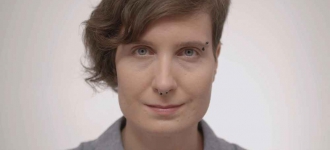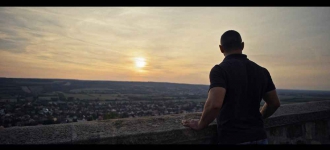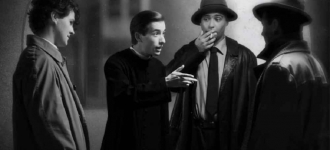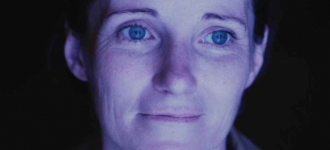Our immediate environment, Eastern Europe, has not become any more cheerful since last November. Nevertheless, or perhaps for this reason, the works in the Hungarian Competition of this year’s Verzió offer us strength and hope. The buzzwords of the Hungarian Competition could be – despite all difficulties and despair – recovery, persistence, and survival, which can be applied at the social level (for those in dire poverty or strangled by prejudice), the historical level (in the dark shadow of the Holocaust), and the psychological level (in the normative crises of entering adulthood, or the diagnosis of a life-threatening illness).
In Fairy Garden, an elderly homeless man befriends a transgender teenager – a lanky subcultural influencer, who has escaped her discriminatory and hostile rural environment for the capital city. It is hard to imagine two people from more diverse worlds and value systems; however, this documentary presents a moving picture of how love and acceptance can bridge the deep social differences of people who come to rely on and help each other. In Hatchery, we follow a young woman’s struggle for independence. Relying on her unusual job, she tries to break away from her oppressively controlling parents, form her own identity, and find happiness in a relationship. In Who I Could Possibly Be, a young woman who experienced sexual abuse is fighting for custody of her children. In Rescuer, a former drug addict, who spent several years in prison, is looking for God and love as he tries to restart his life. Habiszti offers us a glimpse into a young Roma man’s search for identity, acceptance, and justice through art. The only historical documentary of the program, Until Death, conducts a historical examination of the human personality traits and attitudes that influenced individual decisions at political crossroads: what led some to mass murder and others to rescue during the Holocaust; how did a sense of responsibility in life-threatening situations bring out daring and selfless action from some, while the collapse of laws and mass hysterics turned others into sadists? Finally, from a somewhat different approach, the struggle for survival is presented outside social, political, and historical contexts. On an existential level, I Won’t Die gives an intimate account of the physical and emotional consequences of a successful and wealthy art curator’s cancer diagnosis, and the torturous months that followed in treatment.
The films of the Hungarian Competition stand out not only because of their vitally important topics, amazing characters, and dramatic stories, but also due to the consistent, high-quality and sometimes extremely creative use of the language of documentary film. This Verzió's Hungarian Competition yet again proves that despite the crisis in the Hungarian film industry, documentary filmmakers persist, work to reflect on our common affairs, and remain fully aware of their artistic and social responsibilities to the past, present and future.
Janka Pozsonyi, Lóránt Stőhr, Teréz Vincze
Selectors of the Hungarian program

